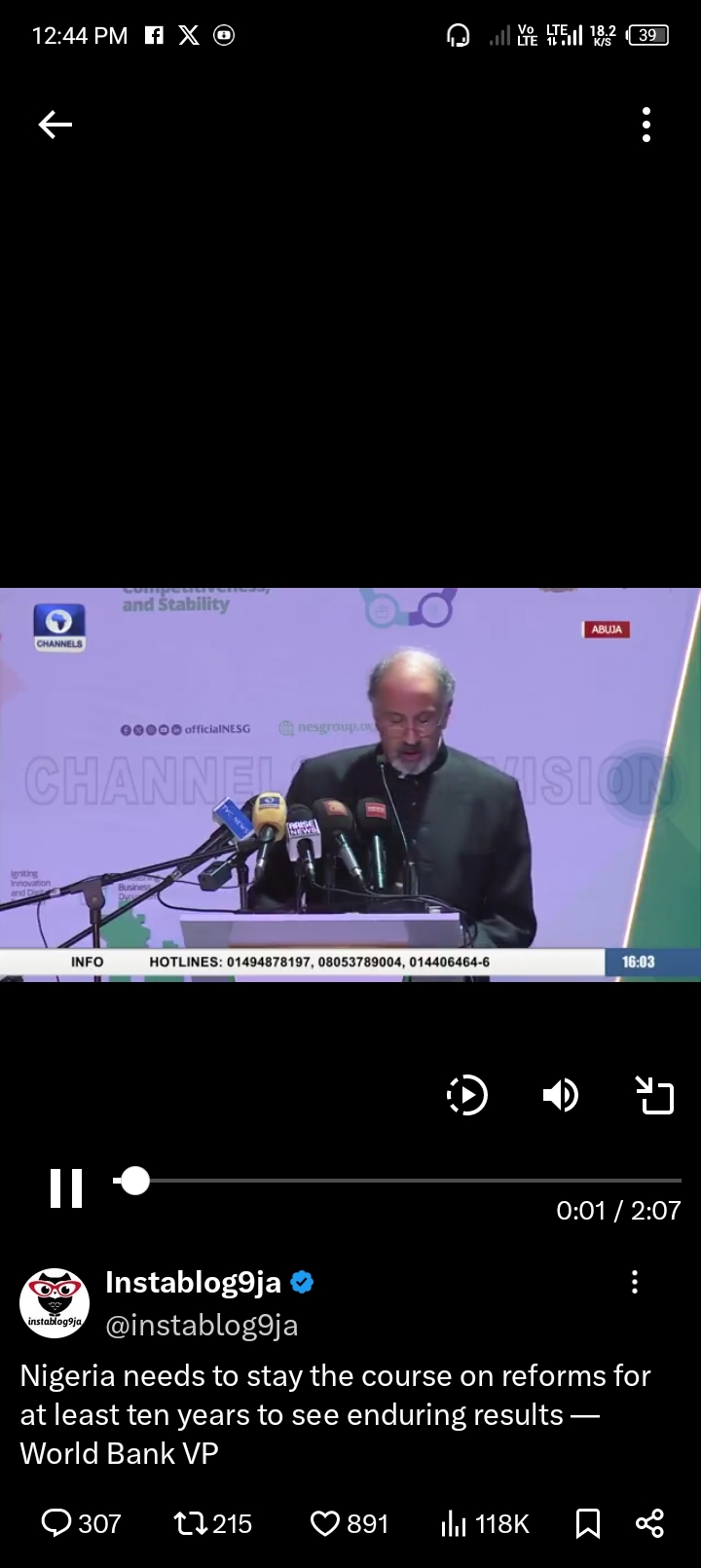
The World Bank has emphasized that for Nigeria to achieve long-term, sustainable growth from its current reforms, it must continue implementing them for at least a decade. Ousmane Diagana, the World Bank Vice President for Western and Central Africa, has stressed that these reforms are essential for stabilizing the economy and lifting Nigerians out of poverty, but they will require persistent effort over many years. The reforms include measures such as the removal of fuel subsidies and the unification of the exchange rate, which have caused inflation to spike, making life difficult for many Nigerians.
Despite these hardships, the World Bank believes that staying the course is crucial to increasing non-oil revenues, boosting investment, and improving public services like education and healthcare. As part of this support, the World Bank recently approved a $2.25 billion loan to help Nigeria in its economic recovery and to protect vulnerable populations during the transition.




